On November 11-12, 2023, the College of Chemistry and Molecular Sciences (CCMS) of Wuhan University (WHU) and the Royal Society of Chemistry (RSC), a UK professional body for chemical scientists worldwide, jointly held an emerging investigators forum entitled “Artificial Intelligence Energized Synthetic Chemistry”. More than 50 investigators and entrepreneurs from the fields of chemical science and artificial intelligence with abundant experience in interdisciplinary research were invited to participate.
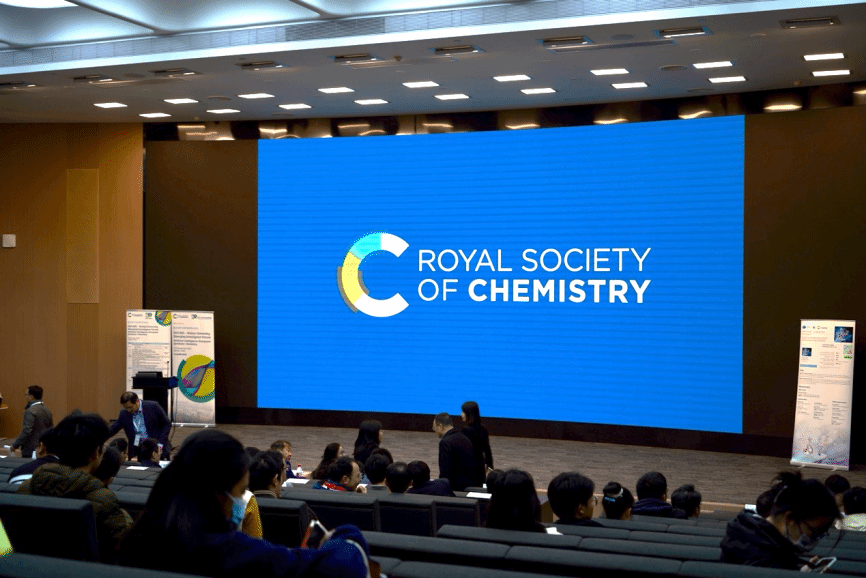
The forum hall
The forum was organized to celebrate the 130th anniversary of CCMS and the tenth anniversary of the first publication of Organic Chemistry Frontiers, one of the top journals in chemical science founded by the RSC. The host, Professor Zhou Qianghui from CCMS, provided an overview of the forum in his opening speech. Professor Zhuang Lin, dean of CCMS, then delivered a general speech introducing CCMS and its rich 130-year history dating back to the Kuanghua School founded by Governor Zhang Zhidong at the end of the Qing Dynasty. He emphasized that the future lies in the hands of young scholars and emerging investigators. He also mentioned that AI, undoubtedly, is “the trend of our times,” and that the strength of this forum liesin bridging the interdisciplinary gap between chemical science and AI.
Afterwards, Chen Huili, managing director of the RSC in China and East Asia, conveyed her congratulations on the successful organization of this forum. She reviewed the history of cooperation between the RSC and the CCMS, finding that there were many connections between them. She also shared her belief that the RSC and the CCMS share the same mission: imparting chemical science knowledge to more young people and providing more service to talented investigators. In recognition of the 130th anniversary of the CCMS, she then presented a memorial plaque from the RSC to Professor Zhuang.
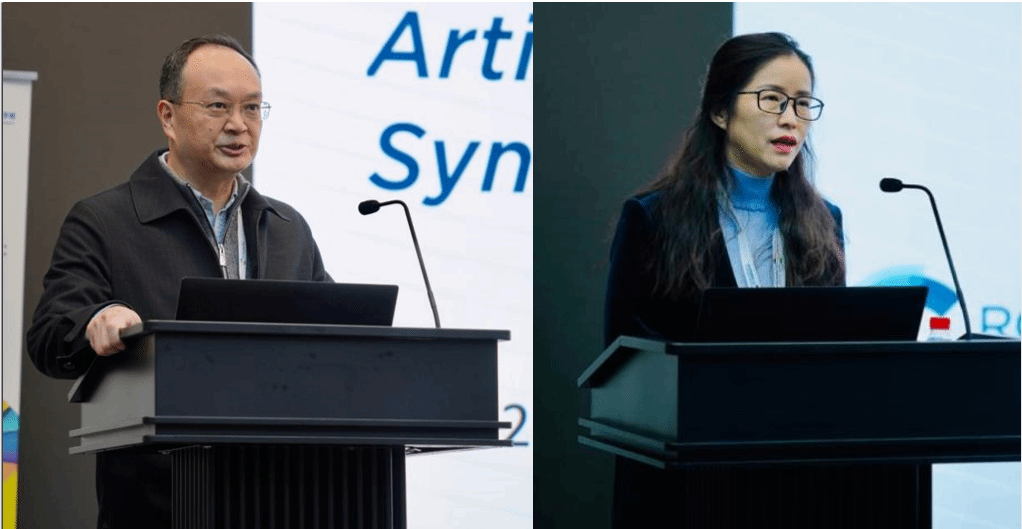
Professor Zhuang Lin during his speech (left), and ManagingDirector Chen Huili during her welcome speech (right)
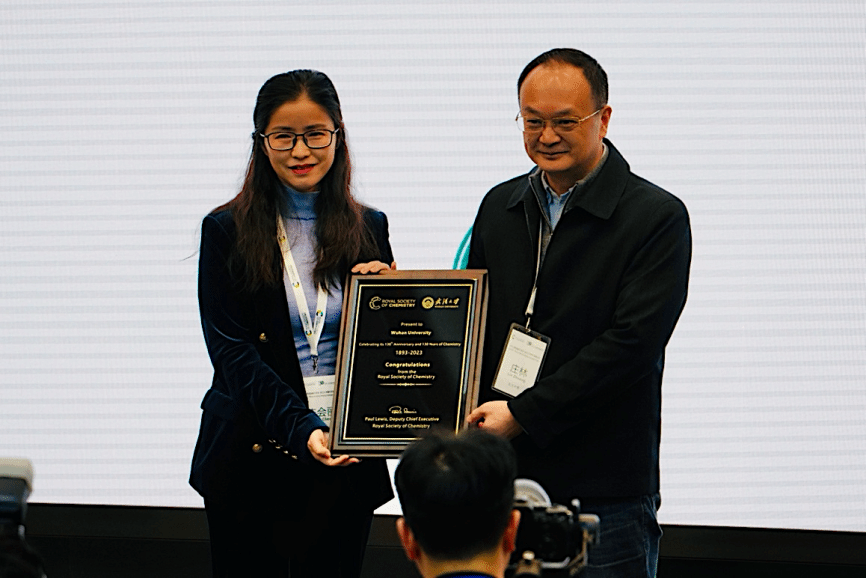
Managing Director Chen (left) presents the celebration plaque to Professor Zhuang (right)
Following the opening ceremony, many outstanding scholars and entrepreneurs shared presentations on how AI could revolutionize research in synthetic chemistry. Consensus among the guest speakers emerged through a joint affirmation that the application of AI has the potential to boost both efficiency and quality in synthetic chemistry.
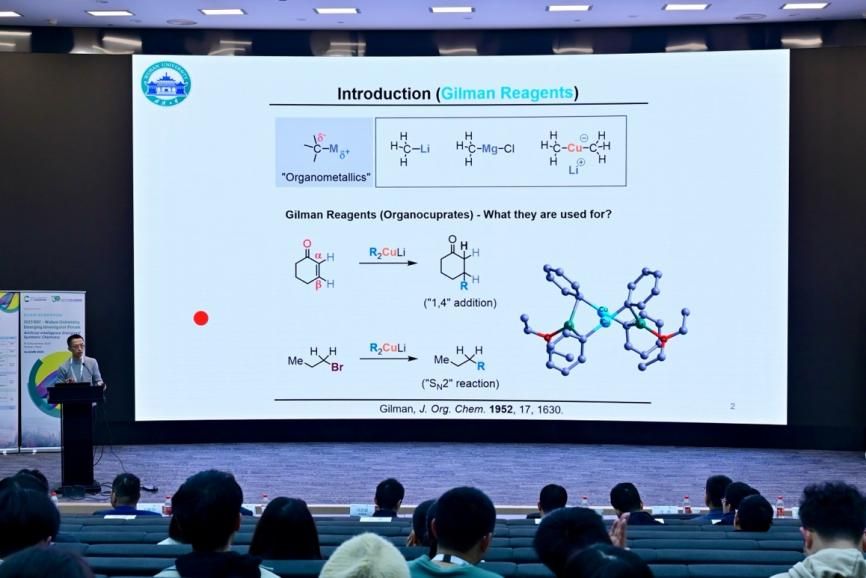
Professor Chen Yihung of WHU during his presentation
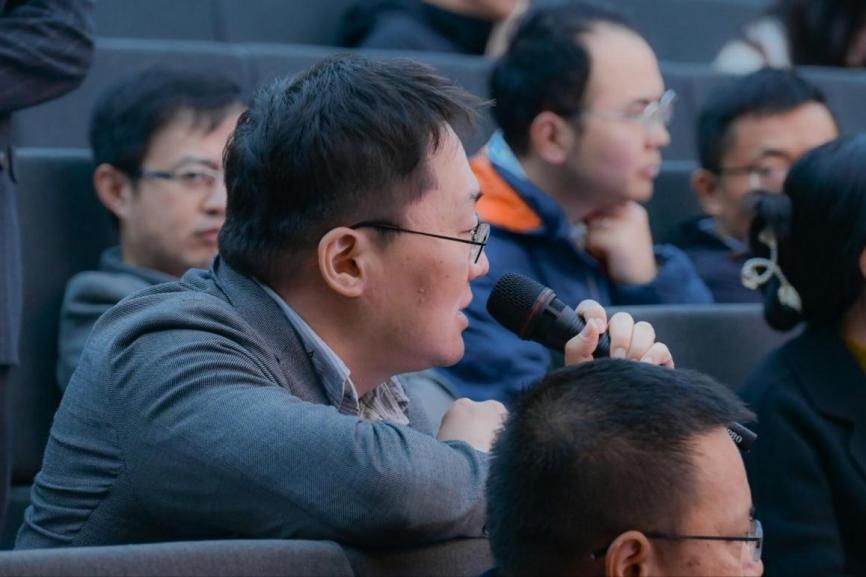
A member of the audience engaged in discussion with a presenter
The forum also provided opportunities for investigators to engage in discussions while a poster exhibition showing works from some of the guests was underway outside the venue, encouraging participants to view and share their opinions about those works during breaks.
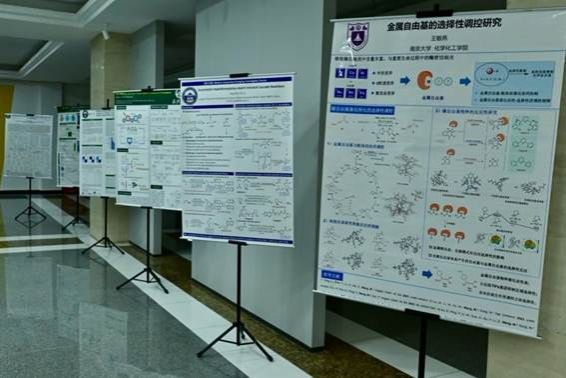
The posters displayed outside the venue
The forum lasted for two days. On the second day, a set of closed-door sessions took place, providing investigators with an opportunity for communication. These sessions were intended to help break down the traditional boundaries between different scientific fields and foster a collaborative atmosphere where interdisciplinary dialogue could flourish.
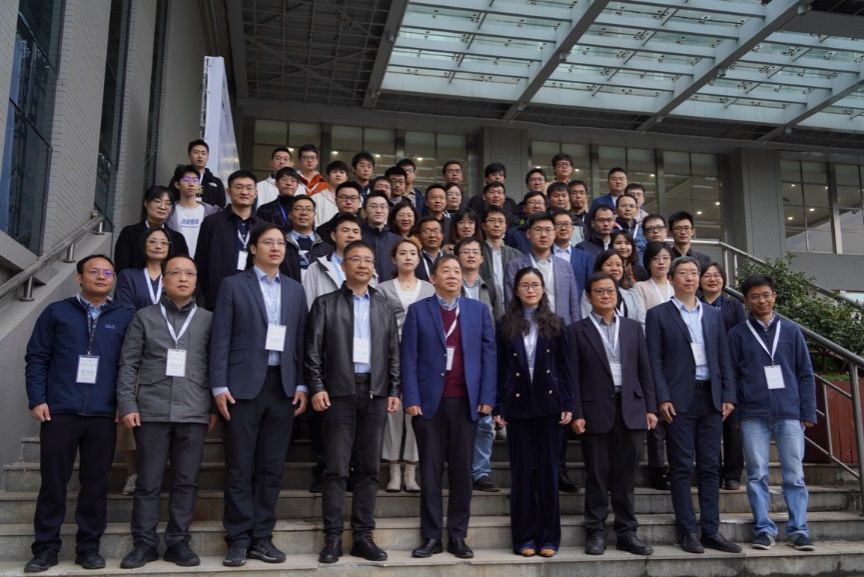
Group photo of participants
By the end of the meeting, participants came together for a final group photo. At the end, participants spoke highly of the forum, especially its open atmosphere and interdisciplinary nature.
Photo by Chen Hui, Zhang Ruiyu
Edited by Wang Yihan, Li Jing, Qin Shihan, Cao Hangqian